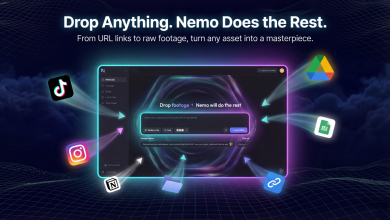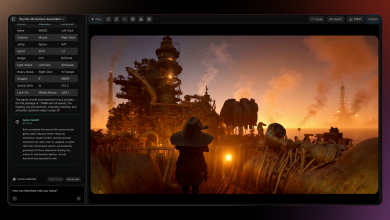
Matt Cockbill, Partner in the CIO & Technology Officers Practice at Odgers, explains how executives can upskill in an AI-driven economy
AI is no longer confined to innovation labs or pilot projects. It is reshaping the DNA of leadership itself. The executives who once succeeded through operational control or deep sector expertise are now being tested on adaptability, digital fluency and their ability to harness AI responsibly. The next decade will separate those who can interpret, apply and lead through technology from those who merely observe it.
The question is no longer if leaders should upskill. It is how they must evolve to remain credible and effective in an AI-driven economy.
From Control to Curiosity
The age of command-and-control leadership is giving way to a new model built on curiosity and adaptability. AI compresses decision cycles, surfaces new patterns in data and exposes knowledge gaps. Leaders can no longer rely on instinct and experience alone. Success now depends on how effectively they can interpret data, interrogate models and translate insights into action.
The most successful executives are not the ones who claim mastery over technology, but those who ask better questions of it. They view AI as a thought partner rather than a threat. This ability to engage in dialogue with intelligent systems is already showing measurable value.
A 2025 study published by Cornell University found that leaders who interact more effectively with AI agents also demonstrate stronger leadership outcomes with human teams. The research suggests that AI fluency is not just technical. It is behavioural, rooted in curiosity, collaboration and the capacity to learn from machines as peers.
The AI Capabilities That Matter Most
Tomorrow’s executives will be defined less by what they know and more by how they learn. Four capabilities are already distinguishing effective leaders in the AI era.
First, systems thinking: the ability to see AI as part of a connected ecosystem that spans data, people and strategy. Second, prompt literacy: knowing how to communicate effectively with generative systems to unlock sharper insights. Third, ethical AI judgement: understanding where innovation intersects with fairness, transparency and risk. And finally, learning agility: the instinct to continuously experiment, reflect and adapt.
AI-fluent leaders are not necessarily coders or data scientists. They are translators who can turn technological potential into organisational advantage. Their value lies in context and communication, not complexity.
What Boards and CEOs Now Expect
The expectations placed on technology and digital executives have matured dramatically. The era of AI experimentation is closing, and the focus has shifted toward integration, governance and measurable outcomes.
According to McKinsey’s State of AI 2025 survey, many organisations are moving beyond pilots and embedding AI into business models, workflows and governance structures. KPMG’s 2024 GenAI survey found that 78% of executives are confident their AI investments will deliver ROI within three years, while PwC’s 2024 Pulse Survey reported that nearly half of technology leaders say AI is now fully integrated into their core business strategies.
Boards now want results. They expect executives to prove how AI drives efficiency, revenue and resilience. They also expect them to anticipate regulatory shifts and communicate risks with the same fluency they describe opportunities. The most sought-after leaders are those who can bridge silos, translate technical language into business outcomes and inspire confidence across both engineers and investors.
How Leaders Can Practically Upskill in AI
Upskilling for the AI era is not a matter of classroom training or certificates. It is an act of applied curiosity. The most effective learning happens through experience.
Executives who take part in small AI projects within their own organisations often gain more practical insight than they would through abstract study. Others learn by engaging with peer networks of leaders facing similar challenges, where experimentation and failure are openly discussed.
Cross-functional exposure is equally important. Rotating across data, operations and customer-facing roles helps leaders understand AI’s broader impact. Many executives are also seeking perspective through partnerships with start-ups, universities and advisory councils, where innovation is discussed at a faster tempo than inside corporate walls.
Upskilling in this context is not a one-off investment but a permanent mode of behaviour that signals adaptability and relevance.
The Emerging Archetype: The AI-Fluent Executive
A new archetype is emerging: the AI-fluent executive. This leader combines technical literacy, strategic vision and communication excellence. They understand enough about how AI works to ask the right questions, connect technological progress with business purpose and translate complexity into confidence for their teams and boards.
The Cornell University study reinforces this shift, showing that leaders who engage in open, conversational interactions with AI agents outperform their peers both in machine coordination and human leadership. These are the executives who will define the next generation of digital and data leadership. They will not only know how to lead with AI, but how to lead through it.
Continuous Reinvention as a Leadership Imperative
The AI era rewards learners, not knowers. Leadership advantage now stems from curiosity, adaptability and ethical foresight. Executives who make learning part of their identity rather than their schedule will shape the organisations that thrive.
AI is not replacing leadership. It is redefining it. The leaders who recognise this early, who invest in their own fluency and remain open to reinvention, will set the standard for what modern executive excellence means in the decade ahead.




